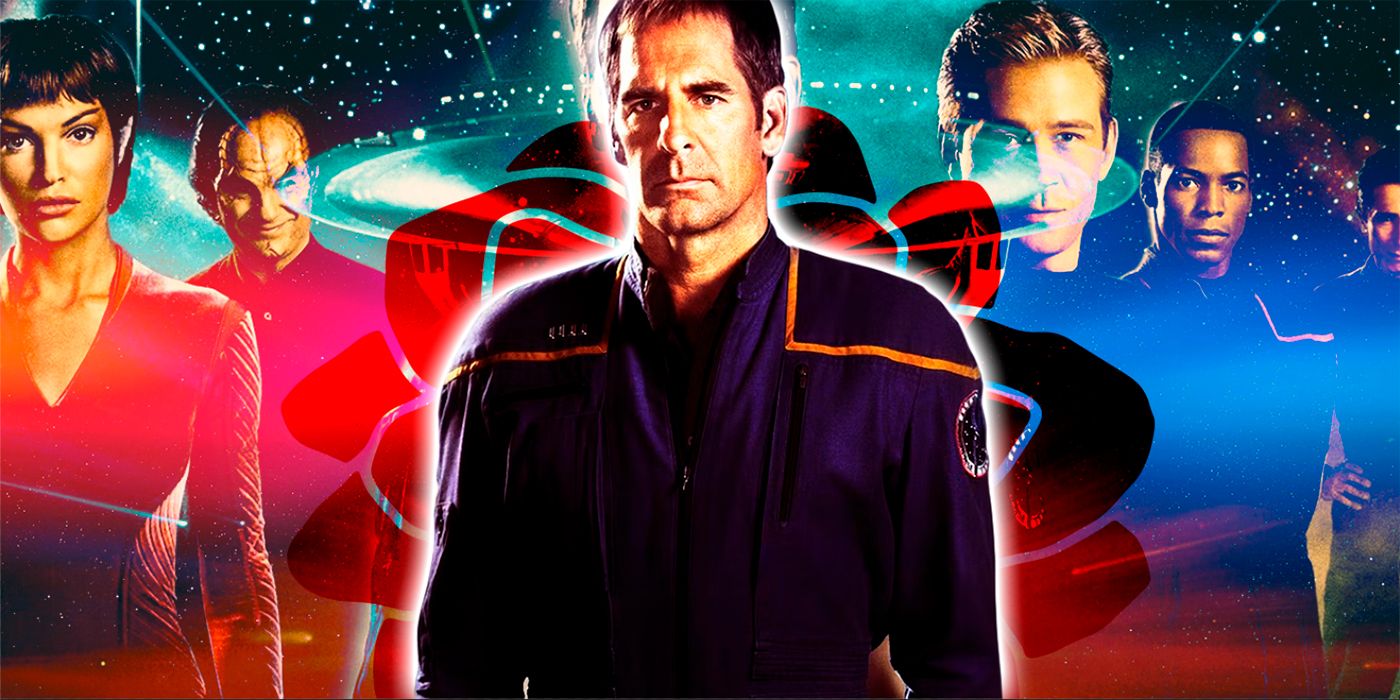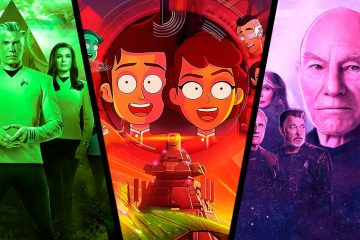Star Trek: Enterprise was a troubled show from the very beginning. When it came time to create a fourth series in the second wave of Gene Roddenberry’s franchise, instead of going forward in time, producers went backward. Co-creators Rick Berman and Brannon Braga had inventive, bold ideas for the series, but they were met with pushback from Paramount in every way. Series lead Scott Bakula arguably saved Enterprise by signing his contract when he did, because the pilot was just days away from filming.The show was meant to replace Star Trek: Voyager as the flagship for the United Paramount Network, which failed only a year after Enterprise was canceled. When audiences lose interest in long-running franchises people use the term “fatigue,” as the MCU is discovering this year. Yet, at least in the case of Star Trek, it was less fatigue and more complacency. Audiences may have skipped out on Enterprise thinking they’d just catch “the next one.” After all, since Star Trek: The Next Generation debuted in 1987, the franchise had endured for 18 years. For seven of those years, there were two series on TV at the same time. Deep Space Nine made it a “real” franchise, but it never had a year when it was the only Star Trek show on TV. Each iteration ran for seven seasons, but Enterprise — as it was initially stylized without “Star Trek” in the title — ended after four. Even with the studio working against them, Berman, Braga, and, later, the late Manny Coto delivered a bold and interesting show.In a conversation between Berman and Braga on The Star Trek: Enterprise Complete Series DVD, they explain the original vision for the show. Instead of going further into the future where “the spandex is a little tighter” and the visual effects more expensive, they wanted to explore the unexplored era between Star Trek: First Contact and The Original Series. They wanted to tell the story of how the United Earth became the utopia fans saw in more futuristic iterations. In fact, the entire first season was meant to take place on Earth with the NX-01 Enterprise launching in the season finale.
Star Trek: Enterprise was a troubled show from the very beginning. When it came time to create a fourth series in the second wave of Gene Roddenberry’s franchise, instead of going forward in time, producers went backward. Co-creators Rick Berman and Brannon Braga had inventive, bold ideas for the series, but they were met with pushback from Paramount in every way. Series lead Scott Bakula arguably saved Enterprise by signing his contract when he did, because the pilot was just days away from filming.
The show was meant to replace Star Trek: Voyager as the flagship for the United Paramount Network, which failed only a year after Enterprise was canceled. When audiences lose interest in long-running franchises people use the term “fatigue,” as the MCU is discovering this year. Yet, at least in the case of Star Trek, it was less fatigue and more complacency. Audiences may have skipped out on Enterprise thinking they’d just catch “the next one.” After all, since Star Trek: The Next Generation debuted in 1987, the franchise had endured for 18 years. For seven of those years, there were two series on TV at the same time. Deep Space Nine made it a “real” franchise, but it never had a year when it was the only Star Trek show on TV. Each iteration ran for seven seasons, but Enterprise — as it was initially stylized without “Star Trek” in the title — ended after four. Even with the studio working against them, Berman, Braga, and, later, the late Manny Coto delivered a bold and interesting show.
In a conversation between Berman and Braga on The Star Trek: Enterprise Complete Series DVD, they explain the original vision for the show. Instead of going further into the future where “the spandex is a little tighter” and the visual effects more expensive, they wanted to explore the unexplored era between Star Trek: First Contact and The Original Series. They wanted to tell the story of how the United Earth became the utopia fans saw in more futuristic iterations. In fact, the entire first season was meant to take place on Earth with the NX-01 Enterprise launching in the season finale.
#Scott #Bakula #Saved #Star #Trek #Enterprise #Pilot #Filmed
Note:- (Not all news on the site expresses the point of view of the site, but we transmit this news automatically and translate it through programmatic technology on the site and not from a human editor. The content is auto-generated from a syndicated feed.))



